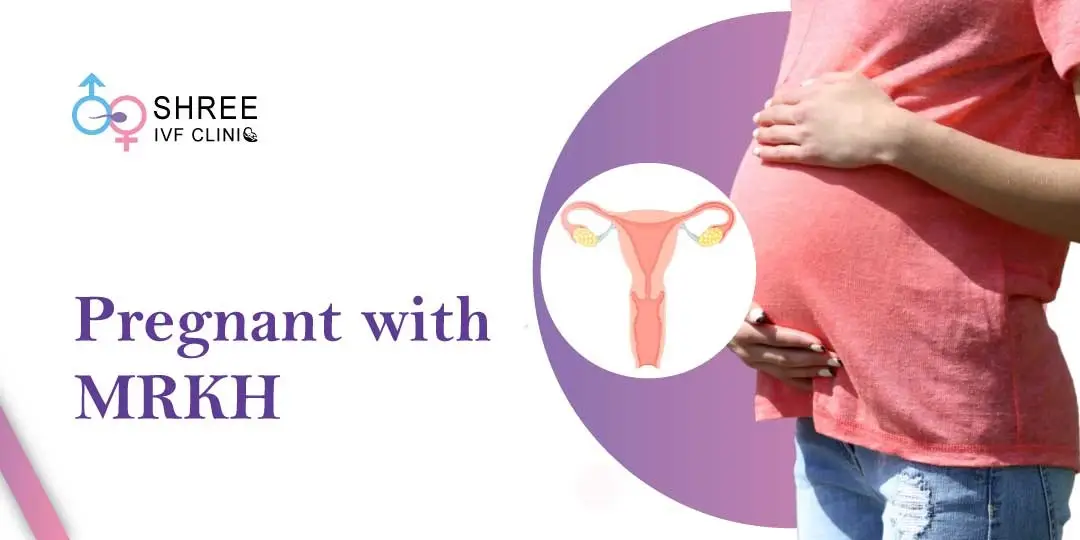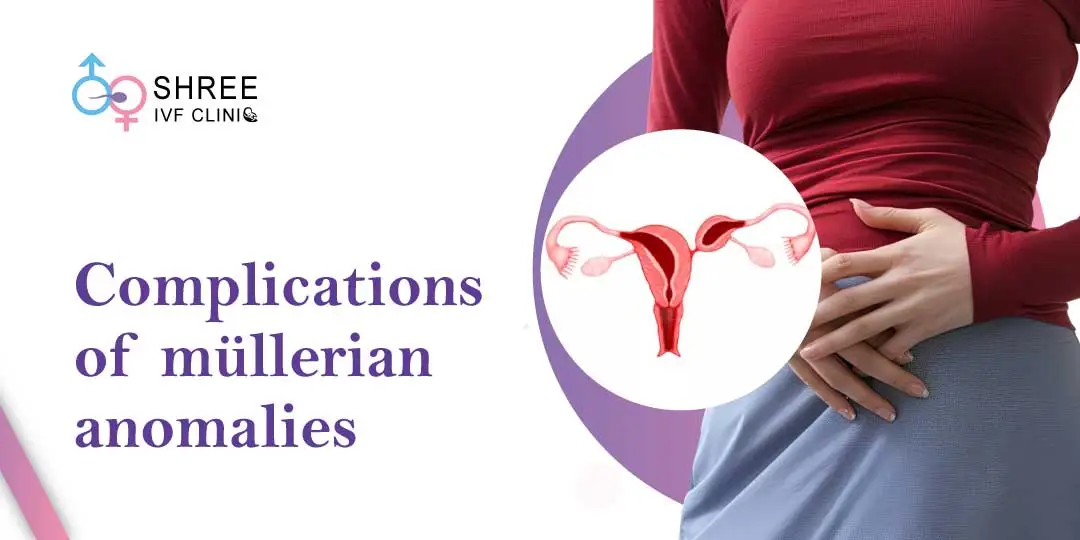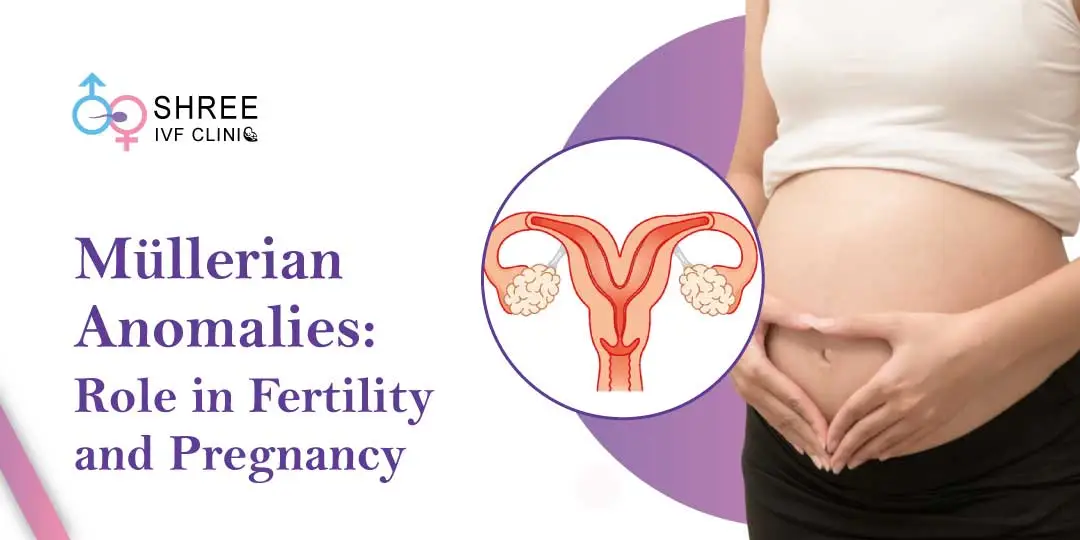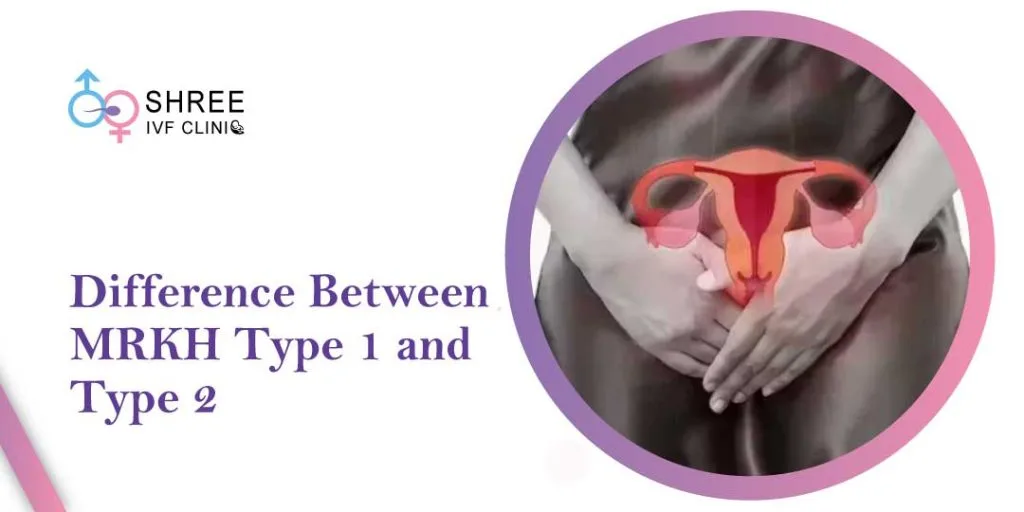Can You Get Pregnant with MRKH?
UPDATED ON 18TH MAR. 2024
If you have been diagnosed with MRKH syndrome, you may be dealing with several difficulties and issues with your fertility. The inability to bear a child may be a devastating realisation for many women, but it is vital to know that you still have alternatives.
In this blog article, we will look at fertility and MRKH, specifically whether or not it is feasible to conceive with this illness. We will examine the many medical treatments and therapy choices that may help you pursue your dream of becoming a parent.
So, if you’ve ever wondered whether it’s feasible to have a family with MRKH, read on to find out more about the options available.

AUTHOR
Dr Jay Mehta
Scientific Director & IVF Specialist with 10+ years of experience
CONDITION
GET IN TOUCH ON
The Effect of MRKH Syndrome on Fertility
MRKH (Mayer-Rokitansky-Kuster-Hauser) syndrome predominantly affects the reproductive system, causing females to have an absent or underdeveloped uterus and upper section of the vaginal canal.
Despite the existence of functioning ovaries, this disease makes carrying a pregnancy impossible in the conventional sense. This is because an undeveloped or missing uterus is essential for a fetus’s survival and development.
MRKH may have a profound and multidimensional influence on a woman’s fertility, affecting not only her physical capacity for conception and gestation but also her psychological and emotional well-being.
Is it possible to conceive with MRKH syndrome?
The simple answer is that it is possible to conceive with MRKH condition. However, the procedures and techniques used may vary from those often associated with spontaneous conception.
(Note: At Shree IVF Clinic, we neither suggest nor perform surrogacy or donor eggs. We treat MRKH holistically and try to give you your biological child. )
Causes and Symptoms of MRKH Syndrome
MRKH syndrome is a congenital condition, which means it is present from birth and is caused by faulty foetal reproductive system development. The specific causes of this illness are yet unclear; however, genetic and environmental factors may play a role.
MRKH usually shows no symptoms until puberty, when a girl does not start menstruating. Symptoms may include the lack of menstrual cycles (amenorrhoea); however, girls with MRKH often develop typical secondary sexual characteristics throughout puberty.
Some females may have stomach pain or discomfort when they menstruate because of the buildup of menstrual blood in the vaginal or pelvic regions where there is no usual outlet for this blood.
Diagnostics and Treatment Options
MRKH is often diagnosed when a teenage girl speaks with a doctor about the lack of menstruation. Initial evaluations often include a physical examination as well as imaging procedures to see the reproductive organs, such as an ultrasound or MRI. In rare circumstances, genetic testing may be performed to rule out similar syndromes or illnesses.
Depending on the individual’s circumstances, MRKH may be treated in various methods. Treatments may include surgically creating or dilating a vagina (vaginoplasty or vaginal dilators) to allow for sexual intercourse. Hormone treatment may also be used to induce menstruation and stimulate breast growth.
Vaginoplasty
Vaginoplasty is a surgical treatment that involves constructing a vagina using tissue from another area of the body, such as the colon or small intestine. This surgery may be done in stages and may need the use of tissue expanders to extend the vaginal canal progressively.
Vaginal dilators
Vaginal dilators are medical devices that progressively stretch and widen the vaginal canal. This may be a less intrusive choice for people who want to avoid surgery or whose vaginoplasty proved unsuccessful.
Hormonal treatment
Hormone treatment is the use of oestrogen and progesterone to cause menstruation and encourage breast growth. This may also aid bone density, which may be impacted by the lack of oestrogen in MRKH patients.
In terms of fertility, assisted reproductive technologies (ART) such as in vitro fertilisation (IVF) or surrogacy may be used to aid people with MRKH in having biological children.

4,790+
379K+
” Every individual and couple’s journey is unique, and
finding the right solutions tailored to their specific
circumstances can make all the difference “
Pregnancy Options
Despite the difficulties faced by MRKH syndrome, advancements in reproductive technology have created new opportunities for those who want to become biological parents. While the lack of a uterus limits conventional pregnancy, people with MRKH may explore using their eggs in combination with gestational surrogacy.
This procedure includes using IVF to fertilise the retrieved eggs with sperm, followed by placing the resultant embryo in the uterus of a surrogate carrier. Those with MRKH should meet with fertility specialist to discuss their choices and select the best course of action for becoming parents.
It is essential to understand that although an MRKH syndrome diagnosis is difficult, it does not limit your ability to enjoy the pleasures of motherhood. With the continual advancement of reproductive technology and supportive healthcare conditions, your ambition is more possible than ever.
Accept the available possibilities with optimism and determination, knowing that methods such as IVF using your eggs are enabling many people to realise their dream of having a biological child. Each journey is unique, and with the help of experienced fertility experts devoted to understanding your situation, your dreams of starting a family may become a reality.
AUTHOR
Dr Jay Mehta
Scientific Director & IVF Specialist with 10+ years of experience
CONDITION
CALL US 24/7 FOR ANY HELP
GET IN TOUCH ON
Share Article on
Recommended Reading
Are Mullerian Anomalies a Problem For Infertility?
Uncover how Müllerian anomalies affect fertility in our in-depth blog. From diagnosis to treatment, learn actionable insights for informed decisions on your reproductive health journey.
Müllerian Duct Anomalies: Role in Fertility and Pregnancy
Explore Müllerian Duct Anomalies’ impact on fertility and pregnancy. Discover types, diagnostics, treatments, and antenatal care with expert guidance.
What is the difference between MRKH type 1 and type 2?
Distinguish between MRKH Type 1 and Type 2, subtypes of Mayer-Rokitansky-Küster-Hauser syndrome. Explore symptoms, diagnoses, treatments, and the value of multidisciplinary care.




